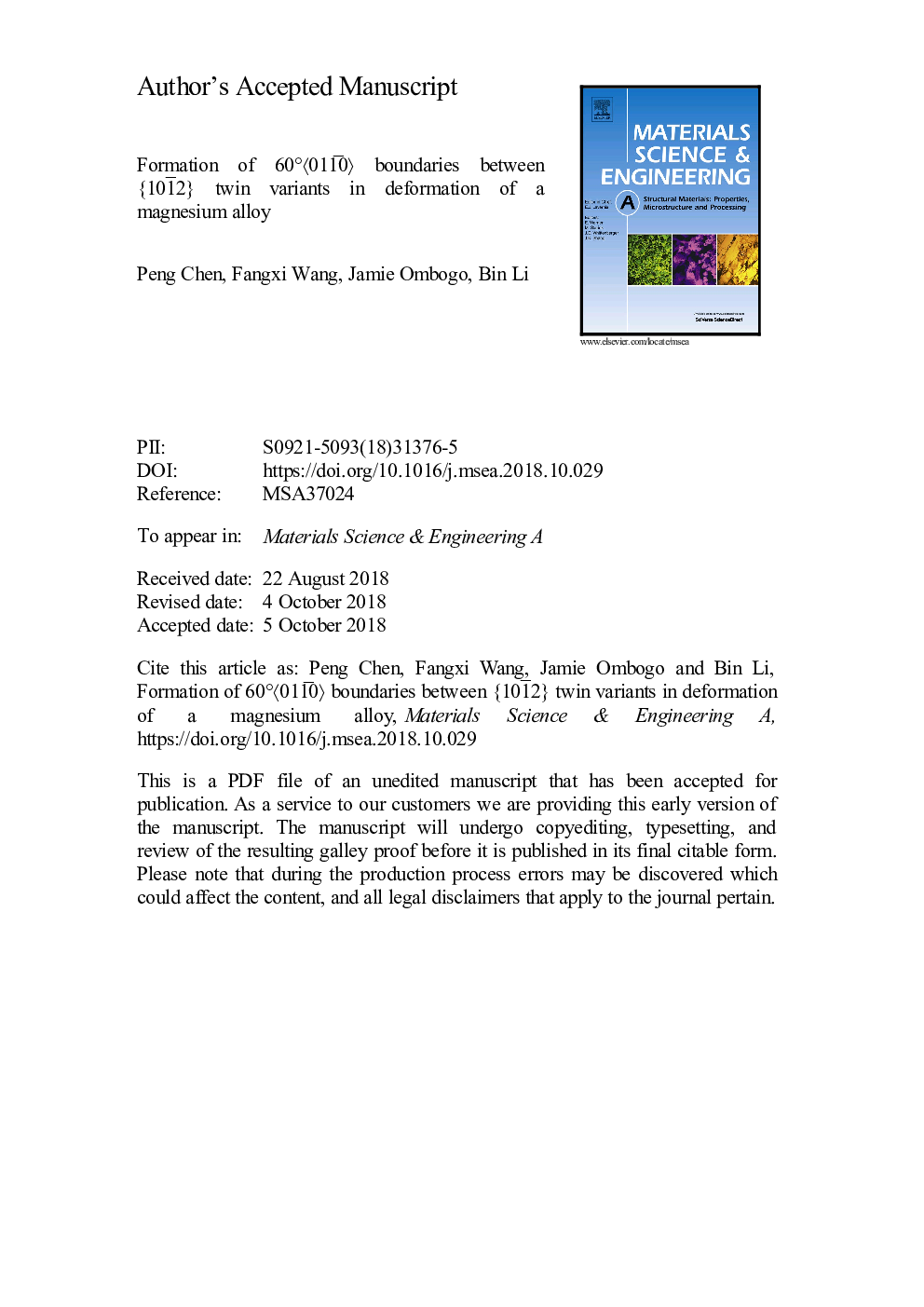| Article ID | Journal | Published Year | Pages | File Type |
|---|---|---|---|---|
| 12055126 | Materials Science and Engineering: A | 2019 | 42 Pages |
Abstract
Interrupted tensile testing along the normal direction of a rolled AZ31 magnesium plate was conducted at various strain levels from 6% to 15.5%. Prior to deformation the specimens were annealed for grains to coarsen such that multiple twin variants in one grain can be activated and interaction between variants can be better resolved. The grain structure and texture evolution were then examined via electron backscatter diffraction. The results reveal that multiple primary {101Ì
2}P twin variants inside individual grains grow and impinge, forming profuse boundaries of 60°ã011Ì
0ã orientation relationship. These boundaries are close to {112Ì
2}ã112Ì
3Ì
ã twin relationship, however, they are not formed by twin nucleation and are only a product of interaction between the primary twins. The morphology of these special boundaries are highly irregular. Atomistic simulations were performed to understand such interaction, and the results show that such 60° ã011Ì
0ã boundaries have limited mobility. Thus, a primary twin variant is able to grow at the expense of other primary twin variants. Our experimental results also show that {101Ì
2} twinning is active throughout the deformation until the specimens are fractured. As the strain increases, secondary {101Ì
2}S twins are activated inside the primary twins. As the strain further increases to near fracture, {101Ì
1}S secondary twins are activated inside the primary twins, followed by activation of tertiary {101Ì
2}T twins inside the {101Ì
1}S secondary twins, a process known as {101Ì
1}â{101Ì
2} double twinning. The formation of irregular 60°ã011Ì
0ã boundaries and the sequential twinning at large strains shed new light on the twinning mechanism in Mg and other hexagonal close-packed metals.
Related Topics
Physical Sciences and Engineering
Materials Science
Materials Science (General)
Authors
Peng Chen, Fangxi Wang, Jamie Ombogo, Bin Li,
